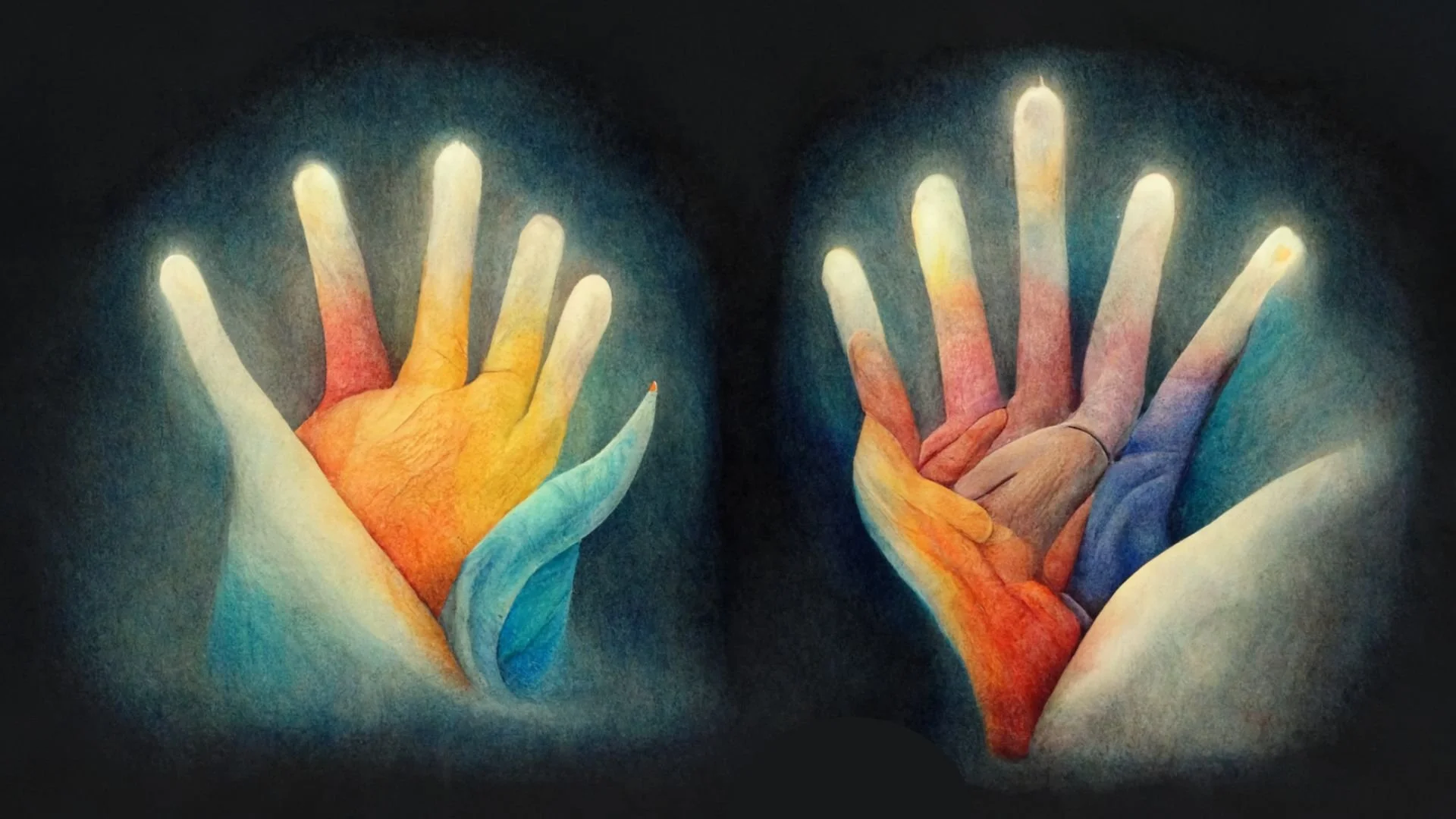Give me your hand
This beautiful teaching frequently comes to mind during spiritual accompaniment sessions.
Below is my adaptation from the Babylonian Talmud, Berachot 5b:
Rabbi Hiyya bar Abba fell ill. His teacher Rabbi Yoḥanan, a healer and holy person, entered to visit.
Yoḥanan gently asks Hiyya, “Is your suffering dear to you?”
“I welcome neither this suffering nor its reward,” Hiyya answers.
“Give me your hand,” Yoḥanan offers.
Hiyya gives Yoḥanan his hand and Yoḥanan stands him up, restoring him to health.
Later, Rabbi Yoḥanan himself fell ill. Rabbi Chanina, also a healer and holy person, entered to visit and asked, “Is your suffering dear to you?”
“I welcome neither this suffering nor its reward,” Yochanan answers.
“Give me your hand,” Chanina offers.
Yoḥanan gives Chanina his hand and Chanina stands him up, restoring him to health.
The Gemara asks, Why did Rabbi Yoḥanan wait for Rabbi Chanina to restore him to health? If Yoḥanan could heal his students, why couldn't he heal himself?
The Gemara answers, A captive cannot free themselves from prison.
I love this teaching because while I know I am very frequently offering a healing hand to others, I am also regularly needing to be freed from the pit myself.
My "directees" are often astonished and delighted by the uplift and release they experience in our sessions. They imagine me standing on some abidingly stable high ground perhaps with special access to hidden realms. While I don’t want to diminish the years of spiritual practice and study behind me, nor dismiss the intuitive fields and psychic gifts I have access to, the truth of this dynamic feels rather basic to me: we only get by with a little help from our friends.
Through time and attunement, we dare to practice trust. As an experienced guide, I am able to take us off-course, towards uncharted waters, into and through rarified atmospheres. And I ceaselessly, within sessions and beyond, offer a restoring and steadfast hand. But I can only do this work knowing I have behind and beside me my own army of healers, a legion of helpers, a deep bench of guides and guidance. I feel held by an endless web of interdigitating hands, a weave wending through and between countless worlds.
Staying with its theme, the Talmud continues by telling another healing story.
Rabbi Elazar, another of one of Yoḥanan’s students, also fell ill. Rabbi Yoḥanan entered to visit and found Elazar in the dark, lying on the floor. But part of Elazar’s arm was bare and his flesh was illuminated, filling the house with light! Then Yoḥanan noticed Elazar was crying; he tried to comfort him:
“Are crying because you fear you didn’t do enough with your life? remember the teaching that the one who offers little and the one who offers much are considered equal if their hearts are in the right place!”
Elazar kept crying and didn’t reply. Yoḥanan tries again:
“Are crying because you lack nourishment? They say ‘not everyone merits to eat from two tables.’ You've certainly made up for what you’ve lacked in terms of physical abundance with your spiritual wealth!”
Elazar kept crying and didn’t reply. Yoḥanan tries once more:
“Are you crying because of the children you have lost? I’ve lost children too.” Yoḥanan shows him the bone of the tenth son he had lost, which he carried with him.
Elazar finally speaks. “I am not crying over any of those misfortunes. I am crying over the beauty of this flesh which will return to earth.”
“Over this,” Yoḥanan replied, “it is certainly appropriate to weep.”
And they cried together.
The story goes on to end like the earlier one: Yoḥanan offers his hand to Elazar and lifts him out of the pit. But I want to leave the light on the tears of Elazar. So many of us lie in the dark alone, feeling like we have no one to share the radiant weeping with. You don’t have to journey in the unknown alone. I joke sometimes that I get paid in tears, but I’m only half-kidding.
If spiritual accompaniment seems like it might nourish you at this time, please — give me your hand and schedule a call.

